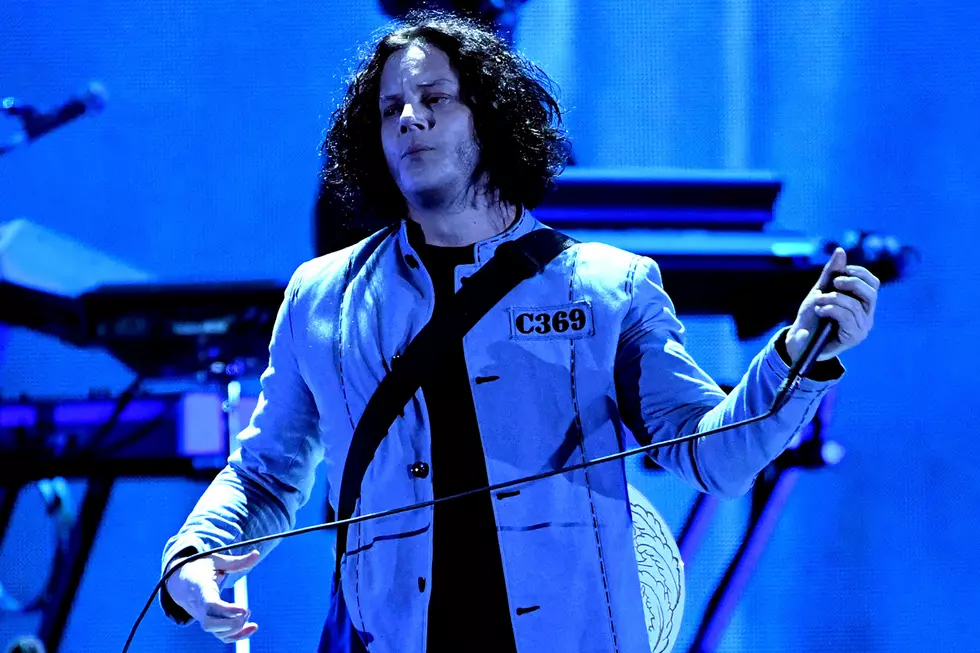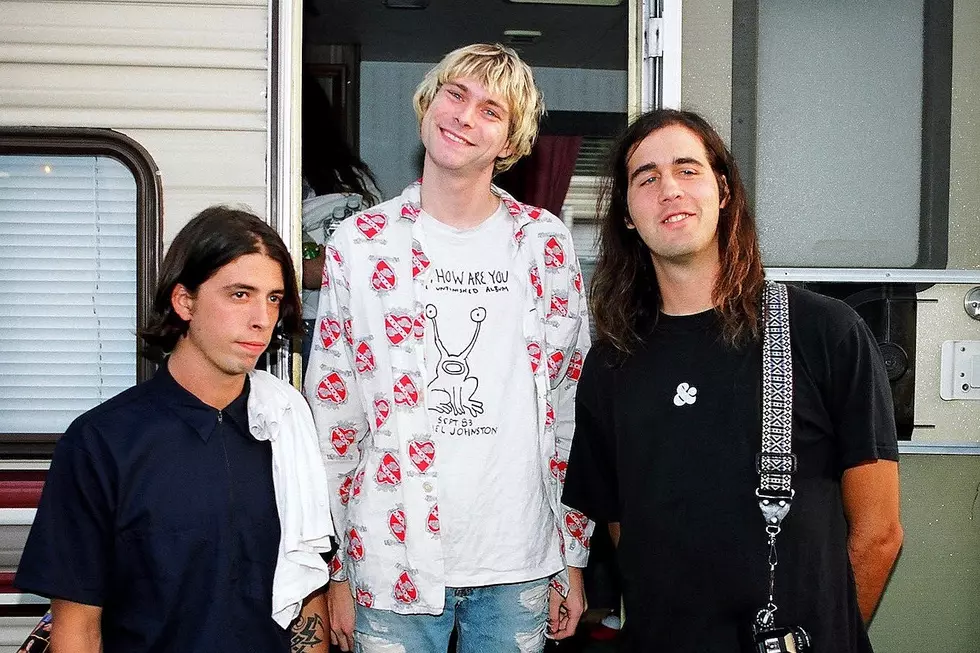
Who’s Behind HitPiece, the Music NFT ‘Scam’ That Angered Bands + the RIAA?
The music NFT website HitPiece had already shut down last week when the Recording Industry Association of America (RIAA) declared it a "scam operation" and sent it a letter threatening a lawsuit and demanding it stops infringing on musicians' intellectual property.
But who's behind HitPiece, and what was the "scam"?
Artists such as indie-rockers glass beach and Mammoth WVH bandleader Wolf Van Halen spoke out against the site surrounding the revelation that HitPiece was trying to sell NFTs of artists using their names, images and album art for which it had not obtained the rights, nor even attempted.
glass beach tweeted on Feb. 1, "Hey @joinhitpiece, take anything with our name involved off your site, period. … We want nothing to do with the site, regardless of the way you're trying to spin it."
On Feb. 2, Van Halen called it "straight up criminal shit," adding he "wouldn't be surprised if they saw no consequences for this blatant level of thievery. Truly disgusting shit here. … Hitpiece should be ashamed."
In an open letter that week, before the RIAA got involved, HitPiece said, "Clearly we have struck a nerve and are very eager to create the ideal experience for music fans. To be clear, artists get paid when digital goods are sold on HitPiece. … We are continuing to listen to all user feedback and are committed to evolving the product to fit the needs of artists, labels, and fans alike."
Who's Behind HitPiece + What Happened to It?
HitPiece was founded in 2021 by music executive Rory Felton and investor Jeff Burningham. Felton also co-ran and was formerly the CEO of The Militia Group, a record label that until 2012 released albums by emo and pop-punk bands such as The Jealous Sound, The Rocket Summer, Rufio and more.
According to the Los Angeles Times, Felton claimed to have raised $5 million in startup funds. Other HitPiece executives include Michael Berrin, better known as MC Serch from the '90s hip-hop group 3rd Bass, and Blake Modersitzki, a partner at a Utah investment firm, as listed on the company's LinkedIn profile.
HitPiece intended to create NFTs of "every song," according to Billboard. It used Spotify's API to scrape info on artists, then uploaded listings of NFTs from a wide range of musicians for sale on its site without getting those artists' consent. The NFTs were said to operate on HitChain, a private Ethereum side chain, per HitPiece's FAQ section.
The site shut down on Feb. 2. Regardless, the RIAA still sent HitPiece's attorney the letter demanding the site and its founders stop infringing on music IPs. It also asked HitPiece to provide a list of site activities, account for any NFTs it auctioned and disclose how much it earned, according to Engadget.
RIAA attorney Ken Doroshow explained, "While the operators appear to have taken the main HitPiece site offline for now, this move was necessary to ensure a fair accounting for the harm HitPiece and its operators have already done and to ensure that this site or copycats don't simply resume their scams."
What Are NFTs?
NFTs — non-fungible tokens — are essentially digital certificates of authenticity that point to a file, such as an image or video, and exist on a record-keeping blockchain in a way that makes them uniquely identifiable and able to be sold and traded with cryptocurrency. Positioned by some as the latest online craze and a harbinger of a decentralized Web known as Web3, some NFTs have recently sold for millions and many celebrities seem to be endorsing the trend.
NFT critics point out that someone who buys one doesn't usually own the underlying file, only the token itself. That's often the case with digital art, as the NFT basically functions as a link to that file on the internet — the original copyright remains with the creator. Still, anyone could save and copy that file (though they wouldn't own it on the blockchain), and the NFT's link could be changed at any time to no longer direct to the file. There are also environmental concerns.
As with any new tech in commerce, NFTs quickly came to music. In 2021, artists including Avenged Sevenfold and Linkin Park's Mike Shinoda began making or "minting" their own NFTs. Even late rocker Kurt Cobain's Nirvana became the subject of an NFT series. That September, HitPiece announced its arrival on the internet, saying in a Twitter post it was a platform that "lets users buy and sell NFTs from musicians."
Why Do People Hate NFTs?
HitPiece's fraudulent grab is just the latest red flag when it comes to the world of NFTs. The speculation boom surrounding the craze could already be equated to a pyramid scheme, as The Atlantic reported. A viral Twitter thread speculated that HitPiece planned to insert itself between artists and consumers illegally before ultimately brokering deals to make it legitimate.
Last week, RIAA CEO Mitch Glazier said, "As music lovers and artists embrace new technologies like NFTs, there's always someone looking to exploit their excitement and energy. Given how fans were misled and defrauded by these unauthorized NFTs and the massive risk to both fans and artists posed by HitPiece and potential copycats, it was clear we had to move immediately and urgently to stand up for fairness and honesty in the market."
Doroshow added, "HitPiece appears to be little more than a scam operation designed to trade on fans' love of music and desire to connect more closely with artists, using buzzwords and jargon to gloss over their complete failure to obtain necessary rights. Fans were led to believe they were purchasing an NFT genuinely associated with an artist and their work when that was not at all the case."
What Are the Environmental Impacts?
Concerns about cryptocurrency's carbon footprint abound. Mining Ethereum is an incredibly energy-intensive process, as Wired noted, and contributes to greenhouse gas emissions as any energy creation can. All in all, it can be said to add to climate change at a time when the UN has already stated that a hotter future is inevitable, according to The New York Times.
Last year, The Verge said "there's probably a hell of a lot of greenhouse gas emissions tied to NFTs. … If NFTs significantly push up the value of Ethereum, miners might try to cash in by upping how many machines they use. More machines generally mean more pollution."
It's yet to be seen if the NFT bubble will burst, or if the trend championed by celebs and crypto enthusiasts continues. But the negatives that already accompany the craze were made starker after HitPiece tried to swindle artists and their fans.
RIAA Letter to HitPiece - Feb. 4, 2022
10 CEOs + Companies That Started Their Own Bands
100 Inspirational Quotes From Rock Stars
More From 106.3 The Buzz








